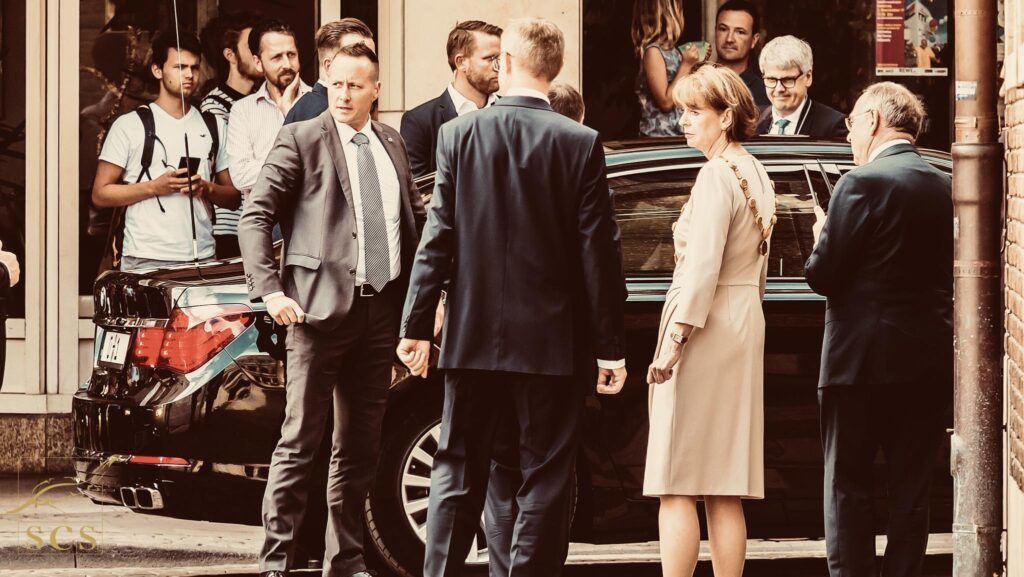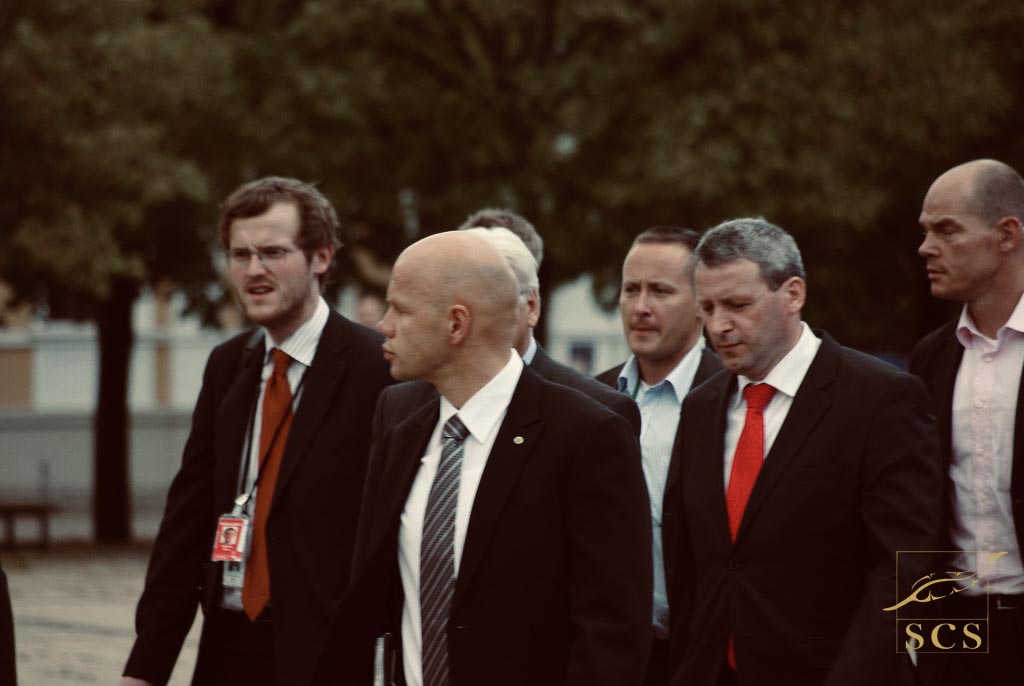More often than not, close protection security is one of those terms that cause more confusion than they provide clarity. This is especially true for high-profile individuals who believe their assets or life is at stake and want to hire a bodyguard, an executive protection agent, a close protection operative, or the likes. Who do they choose?
For the principal and client, distinguishing between dozens of terms should not be at the center of their attention. What, however, ought to be at the forefront of their concern is the quality of the close protection security service a company is offering.
Providing exceptional assistance and taking care of the client’s demands can be a two-edged sword. Sometimes the two are in conflict.
For instance, a trustworthy executive protection agent is not obligated to engage in brawls in order to satisfy the client or whomever. He or she is in charge of the principal’s safety, full stop. For this reason, the security professional must not be at the whim of someone, not even the client, their entourage, family, or business associates.
Close protection is a rapidly evolving sector that constantly improves to meet clients’ needs and confront malicious actors.
Even though there is no legal requirement for providing close protection security, a company’s portfolio and past clients speak volumes.
Expectedly, to safeguard someone’s life, a security professional must attend many years’ worth of training and be relentless in striving to offer elite service. Additionally, he or she must commit to a lifetime of learning and improving their professional skills.
This article will dive deep into what clients may expect from their bodyguards and what is this thing called close protection security.
Core Traits of a Close Protection Operative
Some CP professionals have not developed a sensibility toward their principals and environment. In other words, they lack communication skills to help them understand the facial gestures and body language of their client and fellow CP operatives.
As the famed industry specialist Kevin Horak put it, “No principal will ever enjoy someone who speaks too loudly, speaks over them or in some cases speaks at all.”
For this reason, a proficient CP security professional should know how to go about communicating with their client. For best results, we advise the client and bodyguard to get together and decide on the desired behavior ahead of any movement in public.
Moreover, security professionals need to know how to lend an ear to their clients and consider their concerns, inquiries, and questions. These may include wearing or not wearing a mask or getting vaccinated during the COVID-19 pandemic. The list is endless, but it is essential to create a solid professional bi-directional bond between the CPO and the principal.
Sometimes known as the “grey men,” CP operatives need to blend in with their environment and never attract unwanted attention. Companies, like SCS, recommend to current and future clients to hire security professionals with the following core traits:
- Focused and an exemplar of professional conduct during all tasks at hand – because distraction can cost lives.
- Formal and non-formal education enhancing the skillset of EP agents. A university degree is not required, but principals mostly approve of those with a solid knowledge base.
- Operational experience. It does not truly matter if a bodyguard has worked for ten years, but which roles they took on and how they handled threatening situations.

Who Needs Close Protection Security?
Also known as executive protection or EP, close protection deals with security and risk mitigation measures for ensuring the safety of persons exposed to elevated personal risk. This can be due to their high-profile status, employment, net worth, geographical locations, or affiliations.
In a nutshell, a close protection operative or bodyguard is in charge of their client’s safety at all times during the task at hand. Yet still, the duty of the security professional does not start with the task itself but precedes it, which we call advance work. And it also does not end with the task’s completion but is continued by writing reports on what went well and what the security detail could have done better.
However, is it only VIPs who are more prone to risks? The intuitive answer may be a definitive yes. Nonetheless, a persistent attacker or intruder will closely monitor their target and look for ways to harm them even if they do not expose themselves in the media.
Most often, the main clients of the close protection industry include:
- Affluent individuals,
- Celebrities,
- Nouveau riche, i.e., someone who became famous instantaneously due to the immediate success of their movie or landing a job in a highly televised industry,
- Old Status individuals, i.e., people whose business became lucrative a long time ago and now are collecting the fruits of their previous work, usually in music, acting, or entertainment,
- Short-lived pretenders and public relations people,
- Corporate CEOs, and
- Government officials.
Even though not all individuals belonging to these categories need protection, most of them do. In any case, we recommend conducting a security risk analysis and establishing what kind of protection you need. Reach out to us for advice on this matter.
In Conclusion
Before hiring a company or an individual close protection security professional, talk to your industry peers and find out who they employ. Chances are, they are better informed if they have been in your respective business longer or needed more protection details than you.
It is unlikely that a star-crazed fan is waiting in front of your home or in the backstage of your concert venue. But what if they are?
Maybe it does not seem plausible that an attacker is patiently expecting you to come close to a crowd so they can hurt you. But what if they are?
Whatever it may be, if you are a high-profile individual with valuable assets, it is always better to stay on the safe side and hire protection for your peace of mind.
If you work as a politician, musician, actor, businessperson, or have similar employment, you probably need some kind of close protection service. It can be temporary, during public events, or you may need a certain level of residential security, which has recently been on the rise.
Over and above, close protection security is all about prevention rather than mending the consequences.


November 25, 2021 Author Executive Protection Company: Security Simplified - SCS Solutions Ltd
[…] or the media is treating you generously by giving you oodles of space, chances are you need a protective detail by your […]
November 30, 2021 Author Advanced Skills in Executive Protection: The Essentials SCS Solutions Ltd
[…] executive or high-net-worth individual, you have other things on your mind. This is why your security detail takes care of all these matters for you. Or do […]
January 13, 2022 Author Nigeria Travel Risks To Look Out For - SCS Solutions Ltd
[…] The questionable safety of traveling on the massive bridge may influence some executive protection professionals to avoid it altogether. Even though the Nigerian Federal Ministry of Power, Works, and Housing claims it is safe to use it nowadays, we suggest this be decided on by the responsible EPAs. […]
January 13, 2022 Author The Peripheral Threats in Hotel Security Risk Assessments
[…] course, what we have shown above is simply a range of examples that may be relevant to any security team running a travel program. In reality, these are not the only hotels with outside threats. As with […]
March 1, 2022 Author Close Protection: Team Structure and Roles - SCS Solutions Ltd
[…] a close protection operative is anyone involved in the protection of the principal, regardless of their specific function. […]